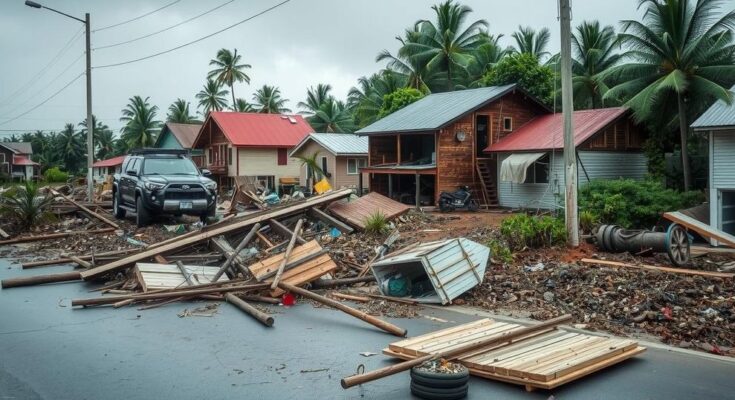Cyclone Chido has caused significant devastation in Mayotte, with officials estimating that the death toll could reach the hundreds or thousands. The island is experiencing widespread destruction, including damage to the airport and informal housing structures. French authorities have mobilized rescue teams to provide urgent assistance to the affected population.
This past weekend, Cyclone Chido wreaked havoc on the French territory of Mayotte, claiming at least 11 lives, with estimates suggesting the death toll may reach several hundred or possibly thousands, according to Mayotte Prefect François-Xavier Bieuville. The cyclone, categorized as a level 4 storm, brought winds exceeding 220 kph (136 mph) and caused widespread devastation, particularly damaging informal settlements and vital infrastructure, including the airport. As efforts to assess the situation and provide aid are underway, France has mobilized rescue teams and supplies to assist the largely impoverished region, which suffers from significant structural challenges.
Cyclone Chido has been described as the worst natural disaster to hit Mayotte in nearly a century, with local officials struggling to ascertain the full extent of the human toll due to the cyclone’s severe impact. Mayotte, an overseas department of France situated in the Indian Ocean, faces persistent economic difficulties and is identified as the poorest territory in the European Union. The cyclone not only affected Mayotte but also had repercussions in surrounding regions such as Comoros and Madagascar, leading to concerns regarding humanitarian crises in similarly vulnerable areas.
In summary, Cyclone Chido has left Mayotte in a state of devastation, with officials fearing the death toll could escalate significantly. As rescue operations continue, the efforts are particularly critical in areas where populations are most vulnerable. The tragic impact of this severe weather event underscores the pressing need for international assistance to support disaster response initiatives and bolster infrastructure in such impoverished regions that bear the brunt of climate change impacts.
Original Source: www.cnn.com




